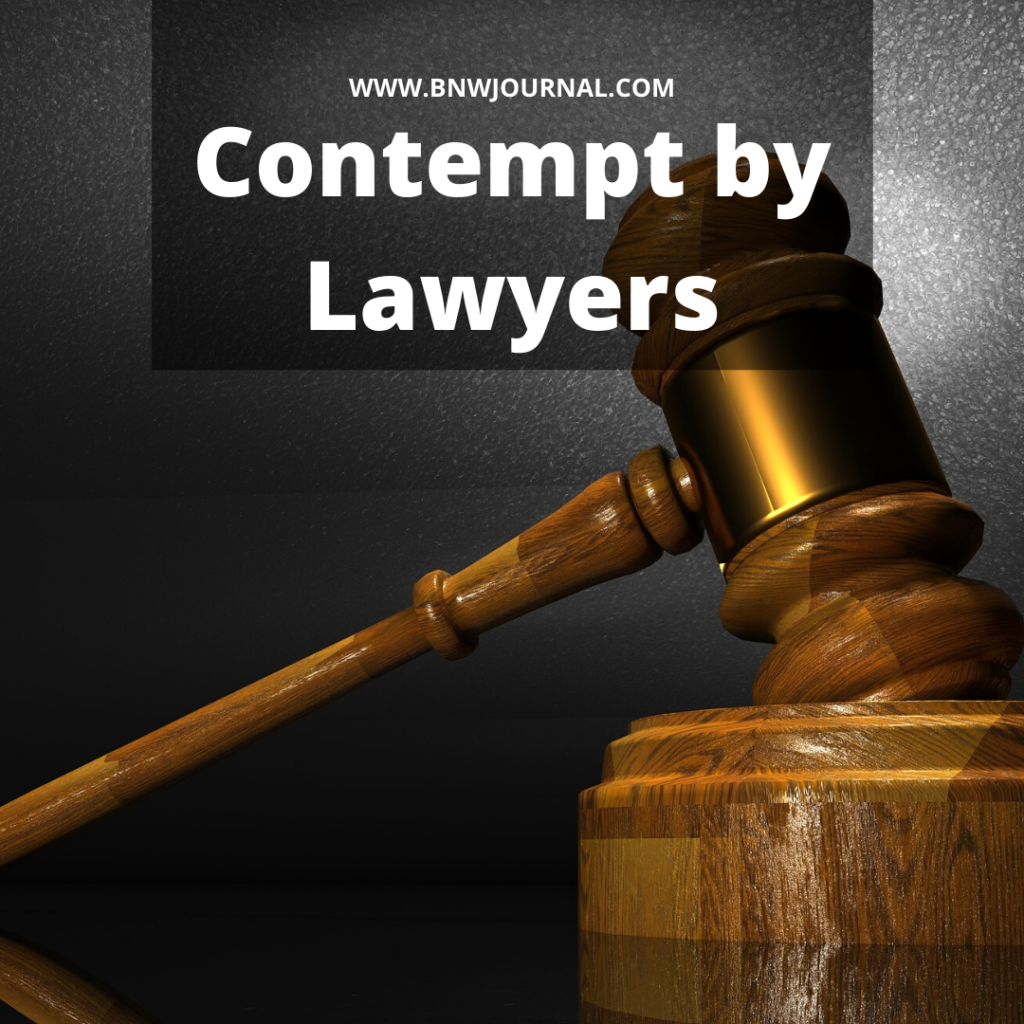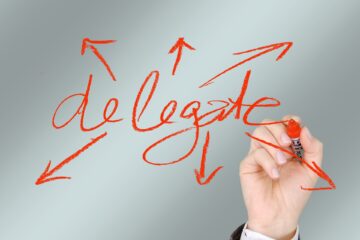![]()
Contempt has a wider jurisdiction and role in courts and cases. All Courts have the right/power to punish any individual, body, or authority, if found guilty for the contempt of court. Taking into account the contempt of lawyers, it happens when the lawyer and judge both get involved in a heated conversation. Mostly in regarding the discharge of duties, leads to contempt of court.

There are several situations when contempt of court occurs; making allegations against a judge, use of abusive words for a judge, bribery, not disclosing true information and manipulating a judge, allegation of unfair and impartiality by a judge, etc. If a counsel says or advises his/her party to disobey the orders of the court. It is also held to be contempt of court. An attack made on the Judiciary in a bar council election is also a contempt of court. And if a question is asked by a court and the counsel is not answering that also results in contempt.
Re v. Ajay Kumar Pandey, Advocate
In Re v. Ajay Kumar Pandey, Advocate[1], Supreme Court held that if an advocate will use insulting words regarding the judge or any judicial officer or put allegation for unfair and unjust treatment of any of the parties or any the other allegation while discharging their judicial duty will lead to gross contempt of court. In the present case, the advocate was sentenced to four months of imprisonment with a fine of thousand rupees. It was said that just by presenting a party in the court, it will not provide a license to him/her for committing contempt of court by putting a fear of threat on the status or on the life of the judge or anything like that.
In re Nandlal Balwani
When an advocate will shout slogans in open court or will throw his/her shoe towards the court or any of the judicial officer. It results in an interruption in the proceedings. The action done by him whether spoken or written will result into criminal proceedings against him/her for contempt of court. This thing happen in a case in which the advocate’s apology was not take. Because it was held that it was not real and was not ashamed of what he had done. It was just an act to escape the punishment which was later on to be given by the court.[2]
Some other case laws-
Seeing all this, an important point also comes into the mind that whether the boycott of court or call for strike by the lawyers will result in contempt of court. It was state that the bar council has no power to call for a strike of the lawyers. If it happens, it will result in committing contempt of court.[3]
It was also state by the Court that if an advocate boycotts the working of court without any consent or prior notice to the client and court. Then, advocate violates his duty towards his client and court proceedings.[4]
However, the pleader will not be held guilty if he is absent from the court on the day when the strike is conducted. A reason to that is he should not be, by any means, part of the conduct.[5]
The most important case is the Common Cause v. Union of India[6], in which the government formed a committee and asked for the suggestion in times of boycott and strike. The committee suggested that interim order and direction must be passed rather than dealing with it on a larger platform.
Giving regards to the suggestions put forward by the Committee, the Supreme Court has issued some interim orders:
- In a case, where the member of the statutory body or the Bar Council itself decides of not letting the advocates to attend the court. It should solely depend upon the member or members to appear without any fear. Also without hesitation for asking for steps and measures by the court.
- No person who is present before the court and is an advocate or practicing his profession in law shouldn’t have face any adverse situation and should not be threaten to be expell from the association of which he/she a member.
- The above situation will not include any matter or protest which is done for the intention of disrupting or interrupting court proceedings. Such protest, however, should not be disrespectful to the court or profession.
- The officials responsible for deciding Bar Association and Bar Council under clause 1 should take it in compliance with what is mentioned in under clause 2 and 3.
It is clarifiy that the discretion will be with the court to look into the matter. And to state whether it involves the question of dignity, integrity or independence of the Bar and/or the Bench. In such a situation, the chairman of the bar or association should consult with the Chief Justice or District Court Judge. It is to take such kind of actions i.e., absent from the court.
The statement made by the Chief Justice or District Judge will be binding on the bar no matter what. The Courts are not under any obligation to adjourn the proceeding of the court; just because the lawyers are not present. Rather, it is an obligation for the court to give its judgment not considering the situation; that a lawyer is present or not. Thus, the Court should take into account Strikes and Boycotts. If a lawyer fighting a case for his client and is now absconding from the court must bare the extra amount which his/her client has to suffer in addition to damages which they might be getting.
Conclusion
The Bar Councils and Associations have a duty to check that there is no unprofessional conduct or behavior among the advocates. As it is the duty, no Council/Association can allow or give permission for the boycott or call for a strike. Also, the Bar Councils and Associations never can ever consider any option or any order to hold a meeting for the discussion of strike or boycott.
At any instance, if it is being notice that such acts may take. It is the duty of the State Counsel to take action or if they fail, such instance should be reporte to the Bar Council of India. So they shall take necessary action against such act and immediately take disciplinary action against the person/advocate. Against who was calling of for strike or influencing others to do the same. If a meeting is said to be conduct, then against those members who are allowing other members to hold that meeting.[7]
References:
[1]AIR 1998 SC 3299.
[2]In re Nandlal Balwani, AIR 1999 SC. 1300.
[3]Arunava Ghosh v. Bar Council of West Bengal and Ors., AIR 1996 Cal 331.
[4]Tarini Mohan v. Pleaders, AIR 1923 Cal 212.
[5]Emperor v. Surendra Mohan Maitra and others, 35 CWN 344.
[6]1995(1) Scale 61 : 1995 AIR SCW 1505.
[7]Mohd. Aqib Aslam, Contempt by Lawyers and Its Consequences, available at: http://www.legalserviceindia.com/legal/article-2047-contempt-by-lawyers-and-its-consequence.html (visited on May 6, 2020).



0 Comments